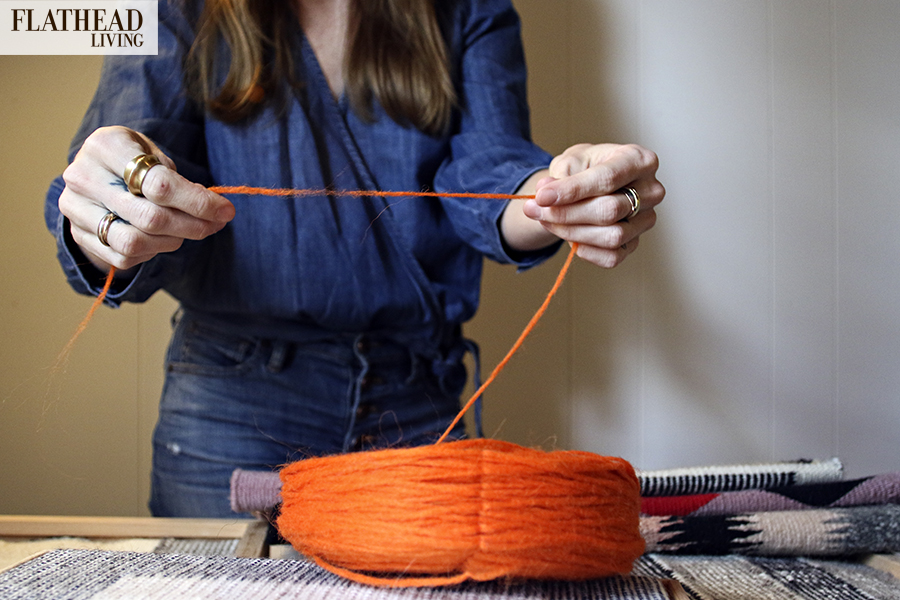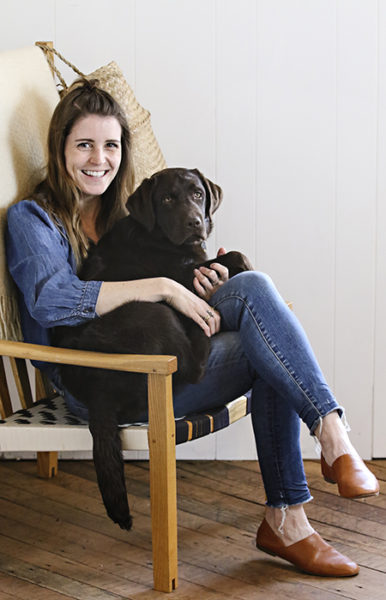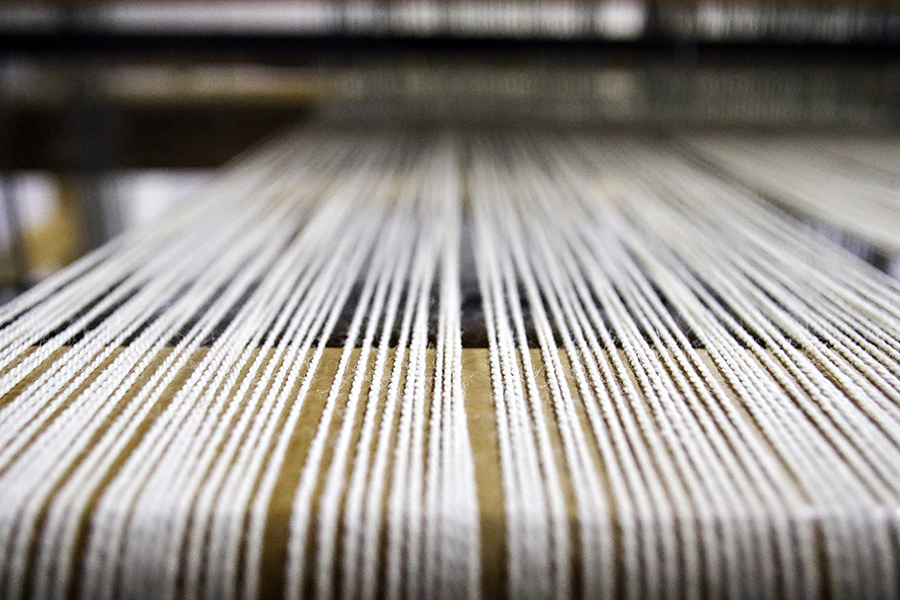An Artist’s Global Pursuit of Textile Secrets
Noelle Sharp’s journey has taken her to Icelandic sheep farming villages, the Navajo Nation, New York, Chicago and, finally, home in Whitefish
By Myers Reece
While Noelle Sharp, a Whitefish textile artist, was living among sheep farmers in an isolated Icelandic village to learn more about a specific kind of centuries-old, pure-strain wool produced there, she also ended up discovering an unexpected baking insight: how to make bread without an oven or fire.
The locals, carrying on long-held traditions, would place the dough in a pot and bury it along the shoreline of a nearby geothermal lake, where the water’s heat would bake it underground: a one-pot, one-hole loaf of goodness.
The Flathead Valley may be full of lakes and smatterings of sheep, but the water can’t bake bread and the wool is a lot different. Still, Sharp, a recent Montana transplant, finds daily inspiration in her new home’s surroundings and residents just as she did in Iceland and, in fact, does wherever she goes in her continual pursuit of honing her craft: New York, Chicago, the Navajo Nation, Detroit, sheep farms far and near.
“It’s always been my dream to live here,” she said as rays of spring sun poured through the kitchen window of her house near Whitefish in early May.

Though Sharp moved to the valley only last October, she’s long been an honorary resident, with generational family roots here. She split her childhood between Utah predominantly and Montana, and she has fond memories of summer days at her family’s cabin in Glacier National Park. Those experiences planted the seed for her eventual move here, but not before she spent years establishing herself in the textile world, including the fashion industry.
In 2012, Sharp founded Aporta, specializing in hand-made textiles, knitwear and accessories, and the company added employees as its brand grew. Aporta’s work was featured in a number of notable trade publications, as well as media outlets such as the Chicago Quarterly and Huffington Post. In 2016, USA Today listed Aporta at number five on a list of the country’s best clothing and accessories makers.
Aporta’s website points out that “all products are produced by hand by Sharp,” an acknowledgement of staying true to its mission statement as a “company fueled by excellence in craftsmanship and quality of living.”

“Aporta fibers are handpicked to ensure all products are of the highest caliber,” the statement continues. “Aporta honors the tradition of honest, hard work. Local resources and artisans. Never outsourced. Never imported.”
Aporta got big enough, however, that its work started shifting precariously toward mass production, threatening to upend Sharp’s core values and approach. That possibility, combined with her disenchantment with the wastefulness and fast-paced culture of fashion, led her to seek a change of scenery, ultimately landing her in Montana, where she has embraced a return to a more deliberate lifestyle that allows her to focus on her art. There’s no mass production occurring in her small upstairs home studio.
“Moving up here was just part of the process, getting away from the city,” she said. “I can really have intent instead of having to make 100 sweaters.”
Sharp originally studied painting and then experimental sound art at the School of the Art Institute of Chicago before switching to textiles. The move made sense, as she had knitted for years as a hobby. Her college degree in fiber material studies armed her with the foundation to elevate her hobby into a career and artistic pursuit.
While Sharp received a formal arts education and often operated in the country’s most distinguished urban art markets, she found and still finds her greatest inspiration among rural people plying ancient trades, from sheepherders in Iceland to elderly Navajo weavers in Arizona.
Thanks to Iceland’s traditional values and livestock regulations, the sheep at the farm where Sharp stayed have “never been crossbred since the Vikings.” The farm’s village, with roughly a population of 80 people, was located a long drive from the nearest grocery store, and daily life played out much as it had for centuries.
“You can’t find that wool anywhere else in the world,” Sharp said, adding that living there, complete with baking bread along geothermal lake shorelines, “was almost like a fairy tale.”
Sharp connected with the Navajo Nation through the Utah-based nonprofit Adopt-A-Native-Elder Program, which is dedicated to supporting Navajo elders, who often face economic insecurity, hunger and lack of access to resources. The humanitarian organization offers food, food certificates, firewood and other volunteer services.
Through the nonprofit, Sharp ended up working with Navajo women who practiced a weaving technique unique to the reservation. It took a while for Sharp to earn the elderly weavers’ trust, due to both a language divide and reluctance to divulge their secrets, but over time she demonstrated that her only motivation was to expand her knowledge. She returns regularly.

“I’m very honored,” she said. “I would never teach the technique to anybody. It’s been amazing to spend time with them.”
Sharp’s studio at her Whitefish home features multiple kinds of looms and sundry knitting and weaving tools. The studio is quiet, a pleasant retreat from the hustle and bustle of Sharp’s previous work environments. She’s excited about making connections with local fiber producers and spending long hours at work, producing showpiece textiles to hang on walls and in galleries, as well as functional hats, sweaters and more.
But she’ll make time, of course, to get out of the studio to rediscover her Montana home and its people. There’s inspiration out there, around every corner.
“People who haven’t been here don’t really know how amazing it is to live here, to live like this, in nature,” she said. “It’s a different pace.”
For more information, visit www.aportashop.com.